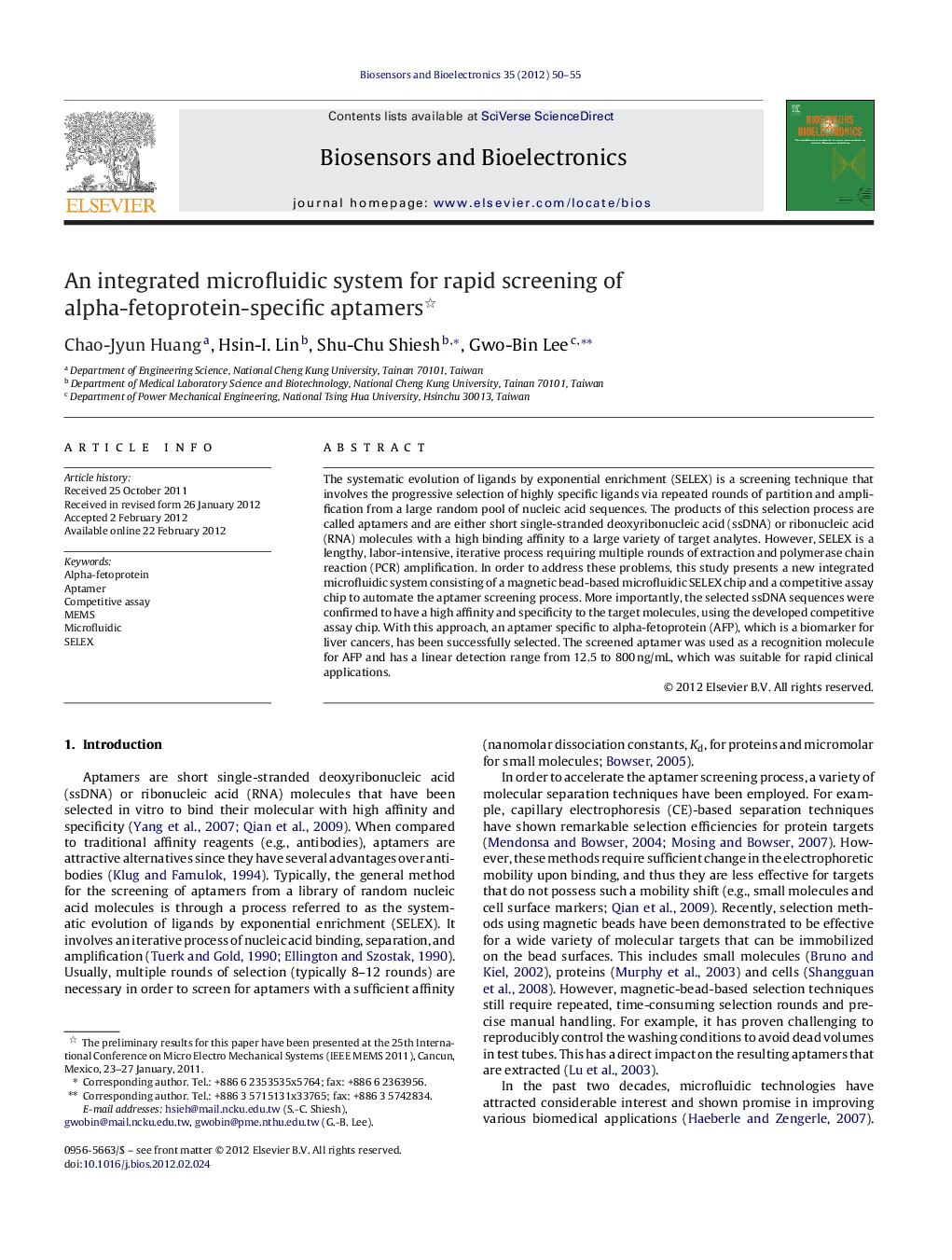| کد مقاله | کد نشریه | سال انتشار | مقاله انگلیسی | نسخه تمام متن |
|---|---|---|---|---|
| 867356 | 909782 | 2012 | 6 صفحه PDF | دانلود رایگان |

The systematic evolution of ligands by exponential enrichment (SELEX) is a screening technique that involves the progressive selection of highly specific ligands via repeated rounds of partition and amplification from a large random pool of nucleic acid sequences. The products of this selection process are called aptamers and are either short single-stranded deoxyribonucleic acid (ssDNA) or ribonucleic acid (RNA) molecules with a high binding affinity to a large variety of target analytes. However, SELEX is a lengthy, labor-intensive, iterative process requiring multiple rounds of extraction and polymerase chain reaction (PCR) amplification. In order to address these problems, this study presents a new integrated microfluidic system consisting of a magnetic bead-based microfluidic SELEX chip and a competitive assay chip to automate the aptamer screening process. More importantly, the selected ssDNA sequences were confirmed to have a high affinity and specificity to the target molecules, using the developed competitive assay chip. With this approach, an aptamer specific to alpha-fetoprotein (AFP), which is a biomarker for liver cancers, has been successfully selected. The screened aptamer was used as a recognition molecule for AFP and has a linear detection range from 12.5 to 800 ng/mL, which was suitable for rapid clinical applications.
► We automate the entire process of systematic evolution of ligands by exponential enrichment (SELEX) by using a new integrated microfluidic system.
► An aptamer specific to alpha-fetoprotein (AFP), which is a biomarker for liver cancers, has been successfully selected and used for detection of AFP.
► We automate the process of competitive tests for screened aptamers by using a new microfluidic chip.
Journal: Biosensors and Bioelectronics - Volume 35, Issue 1, 15 May 2012, Pages 50–55